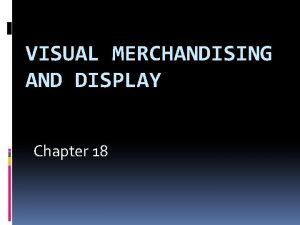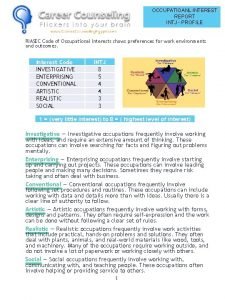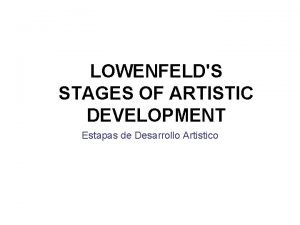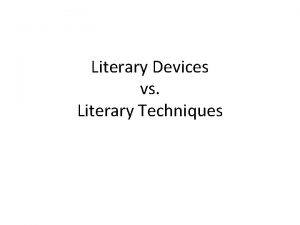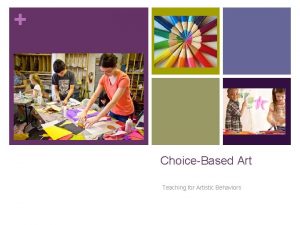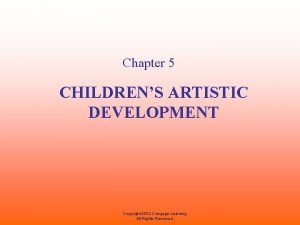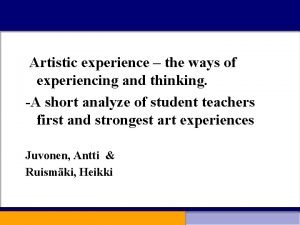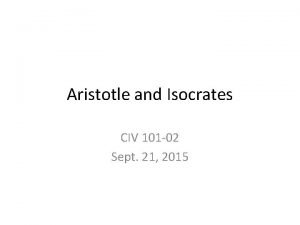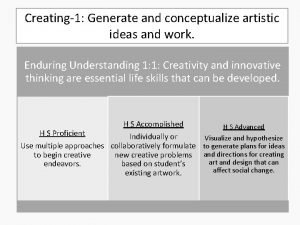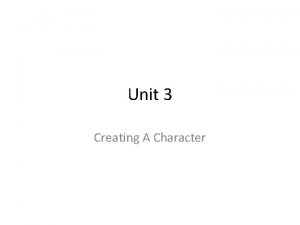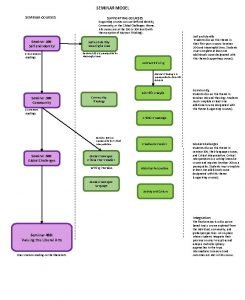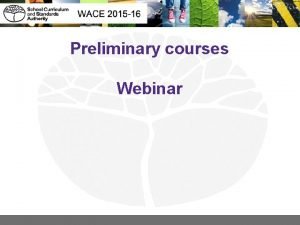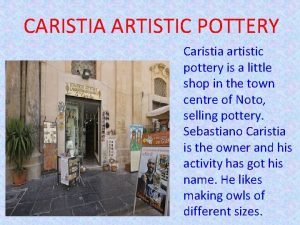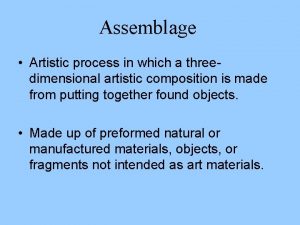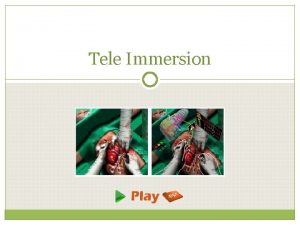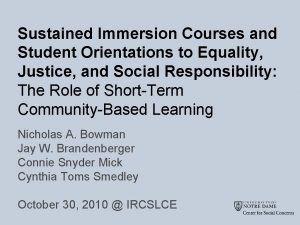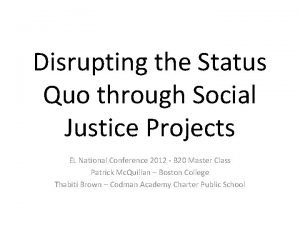Disrupting Education through Artistic Immersion in Honors Courses















- Slides: 15

Disrupting Education through Artistic Immersion in Honors Courses and Programs. Elizabeth M. Dalton Assoc. Prof. of Honors Humanities, Ball State University

“The first thing college is for is to teach you to think… It doesn’t simply mean developing the mental skills particular to individual disciplines—how to solve an equation or construct a study or analyze a text—or even acquiring the ability to work across the disciplines. It means developing the habit of skepticism and the capacity to put it into practice. ” --Bill Deresiewicz, Excellent Sheep: The Miseducation of the American Elite and the Way to a Meaningful Life

For this assignment, you will approach a work of art through ekphrastic writing, a type of writing inspired by art. To begin, you will need to get friendly with an object in the Ball State Museum of Art. Select a work of art from the time period covered in this class. Select an object you find fascinating, one that you can research. Take some time, at least an hour, to observe this object in the museum. Sketch it, look at it from different angles. If it helps, take photos of it (without the flash). § The assignment is written in two parts: § Write a short story, play, dialogue, poem, or even graphic narrative about the object or the scene depicted in the object. Be creative and have fun with this. § The second is an analysis of the object. This analysis should include, in no prescribed order, a description of the object using the art terminology we have been used in class, an attempt at an interpretation of the object, and finally, a discussion of how the ekphrastic exercise helped you to better understand your chosen object.

§ Encourage careful student observation § Generate questions concerning the origins, purpose, and design of the object. § Generate interest in and curiosity about works of art § Inspire secondary research into culture and artistry § Facilitate an understanding of intentionality in art § Provide a foundation for art appreciation Tetradrachm. David Owsley Museum of Art

Intrigue A coy smile, a sideways glance: Your interest is captured. Her hips gently sway as she nears you, Her arms are raised in invitation, An invitation for you. But most captivating of all - Her eyes. Her stunning eyes that draw you in. She can be anything and everything With those eyes. She yearns to know you. --Brianna Lopez, freshman

Accessing literature about women’s lives through § Skill acquisition § Weekly skill journal § Reading Responses § Final project (synthesis)

§ Provide an immersive entrance into texts featuring “women’s work” § Generate curiosity about and empathy for women’s roles in the past § Demonstrate the intentionality of writers’ choices § Create a connection between the students and the characters in each text.

“I think Homer may be trying to provide an outline of a ‘perfect wife. ’ To fit this description, Nausicaa must fulfill her textile duties. Phaeacia is described as wealthy and thriving, and this partly has to do with the fabric they have. Part of the splendor of King Alcinous’ palace is the fifty serving women spinning and weaving” (Homer 7. 119 -121). –Siara Sandwith, junior

“ Defarge’s confusion at Madame Defarge’s ruthlessness works to highlight the power that Madame Defarge has…He does not outright tell her to take Darnay’s name off the list because she is the one in control. “ Defarge’s knitted list is reminiscent of the Greek Fates. When she adds a name to her list, that person becomes destined to die. She cannot be told who can and cannot be added, because she is the one cutting the strings of their destiny. ” --Lillian Marsh, senior

“While I’m not a mother and I don’t have sons who I feel the need to protect as they sword fight in rebellions, I do think about the people I’m making my projects for as I crochet, similarly to what Lady Stark does as she makes her wreaths. “ --Nicole Thomas, junior

§ What kinds of hands-on experiences, artistic or otherwise, are you bringing to your courses? What are the benefits? § How could you integrate an immersive artistic experience into your course’s capstone project as an entrance point as research, or as a product of students’ observation and research? § What are the pitfalls of this pedagogical approach to your classes?

“Grades tend to reduce the quality of students’ thinking. They may skim books for what they’ll ‘need to know. ’ They’re less likely to wonder, say, ‘How can we be sure that’s true? ’ than to ask ‘Is this going to be on the test? ’” —Alfie Kohn, “The Case Against Grades”

Ekphrasis Assignment: § No grade, feedback only on the ekphrastic element § Second part of the project receives a grade based on a standard composition rubric Fabric of Words Colloquium grades § § Completion grades on the skills journals Standard composition rubric used for the reading responses and the final project.

During the assignment creation stage, consider: § Developing low stakes assignments that develop skills needed for a bigger learning goal. § Allowing students to help establish objectives for the assignments During the evaluation/feedback stage consider: § Providing narrative evaluation rather than letter grades § Allowing students to self-assess performance—after reflection § Offering credit for completion only § Using any combination of the above

§ What innovative methods are you or could you use to evaluate immersive projects like these? § How do you think students would respond? § What are the limitations of some of these alternative evaluations? § What might be some of the benefits in your classes?
 Alabama hunting education
Alabama hunting education Types of interior display
Types of interior display Intj artistic careers
Intj artistic careers Pseudorealistic stage
Pseudorealistic stage Artistic devices examples
Artistic devices examples Artistic behaviors
Artistic behaviors Theories of child art development
Theories of child art development Artistic experiences
Artistic experiences Artistic proofs
Artistic proofs Generate and conceptualize artistic ideas and work
Generate and conceptualize artistic ideas and work Technical drawing means
Technical drawing means Character
Character The intellectual and artistic renaissance
The intellectual and artistic renaissance Technical terms in drawing
Technical terms in drawing Chartres cathedral gothic characteristics
Chartres cathedral gothic characteristics Skating
Skating

